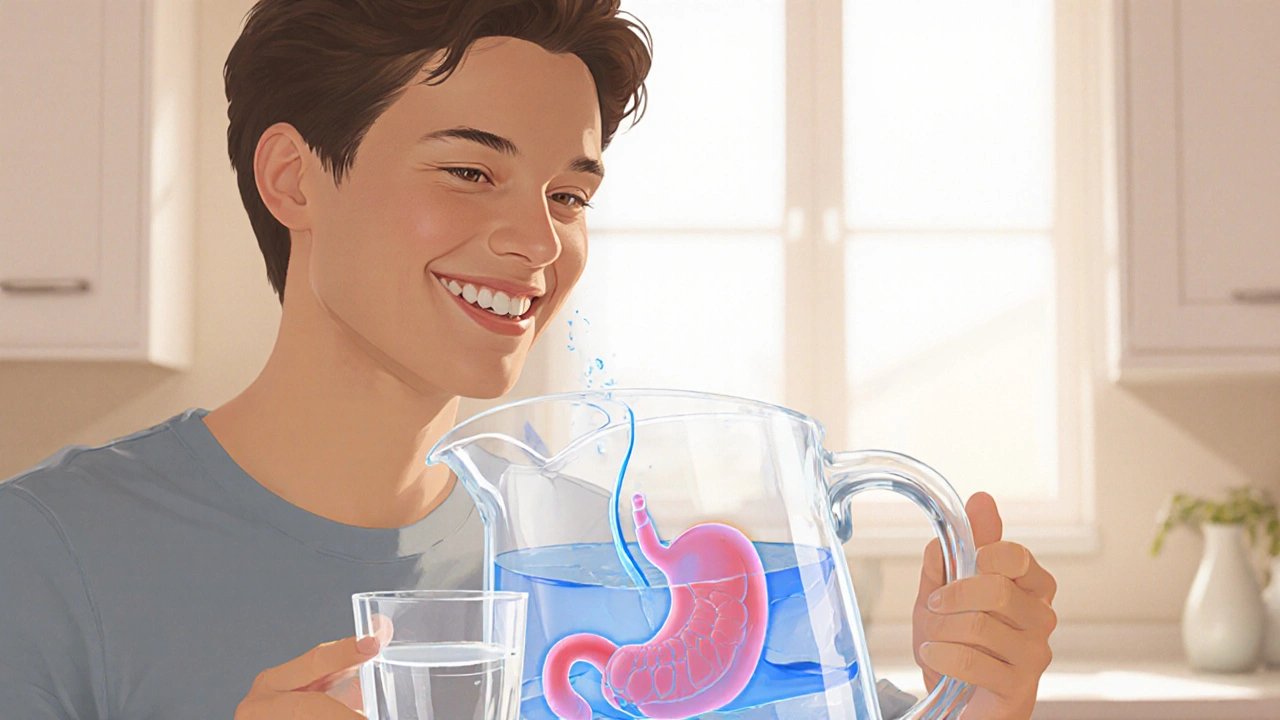Hydration: Simple Tips to Keep Your Body Running Smoothly
We all know drinking water is good, but many of us still fall short. A dehydrated body feels sluggish, gets headaches, and can’t focus. The good news? Fixing it is easy and cheap. Below are clear steps you can start using today.
Why Hydration Matters
Every cell in your body needs water to work. It carries nutrients, removes waste, and helps muscles contract. Even a 2% loss of fluid can lower performance, raise heart rate, and make you feel tired. Staying hydrated also supports skin health, digestion, and kidney function. Think of water as oil for the engine – without enough, the system will grind.
Simple Ways to Keep Your Body Hydrated
Start with a glass of water as soon as you wake up. Your body has been dry all night, so that first glass jumps the hydration meter. Carry a reusable bottle and sip regularly, not just when you’re thirsty. Thirst is a late sign of dehydration, so don’t wait for it.
Mix up your fluids. Herbal teas, low‑sugar fruit juices, and broth count toward your daily intake. If you’re active or sweat a lot, add a pinch of salt or an electrolyte drink to replace lost minerals. For those who dislike plain water, try adding a slice of lemon, cucumber, or a few berries for flavor without extra calories.
Watch your diet. Fruits like watermelon, oranges, and cucumber are over 90% water. Including them in meals gives you extra fluid without any effort. Likewise, soups and stews provide both hydration and nutrition in one bowl.
Use the “8‑by‑8” rule as a loose guide: eight 8‑oz glasses a day, roughly 2 liters. Adjust for climate, activity, and body size. In hot weather or after a workout, you may need 3 liters or more.
Check for dehydration signs. Dark urine, dry mouth, dizziness, and muscle cramps all point to low fluid levels. If you notice any of these, drink a glass of water and reassess your intake.
Hydration also helps with specific health issues. For example, saline nasal irrigation can clear a stuffy nose and reduce watery eyes, as explained in our article on saline nasal irrigation. Staying well‑hydrated makes the irrigation solution work better and eases sinus discomfort.
Some supplements claim to boost hydration, but water is still the core. Honey as a dietary supplement offers antioxidants and can be mixed with warm water for a soothing drink, but it shouldn’t replace plain fluids.
Make hydration a habit, not a chore. Set reminders on your phone, link drinking water to daily tasks (like brushing your teeth), or use an app that tracks intake. Small, consistent actions add up to big health benefits.
Bottom line: water is free, accessible, and vital. By drinking regularly, choosing water‑rich foods, and paying attention to your body’s signals, you’ll stay alert, feel better, and support overall health. Start applying these tips now and notice the difference within a day.

Hydration's Role in Preventing Heartburn: Why Staying Hydrated Matters
Learn how proper hydration dilutes stomach acid, supports the esophageal sphincter, and prevents heartburn. Practical tips, fluid guidelines, and FAQs help you stay comfortable.